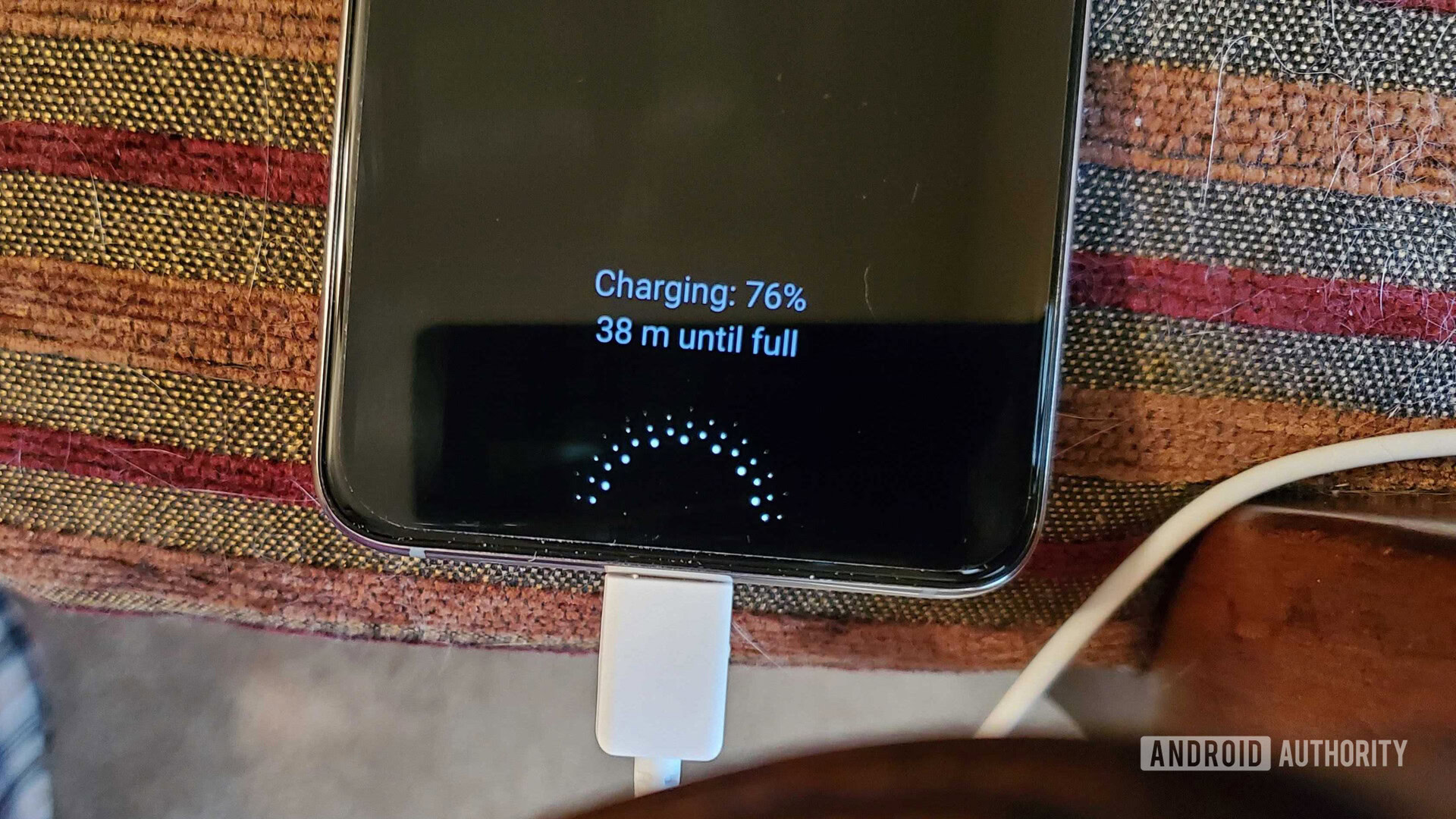Affiliate links on Android Authority may earn us a commission. Learn more.
We asked, you told us: Anxiety over smartphone battery life is a real thing

Back in April, our own Tristan Rayner wrote an article about his revelation during his time in COVID-19 lockdown. He discovered that, while stuck at home, his battery life anxiety has dropped dramatically, almost to the point of non-existence.
“Battery life anxiety?” What’s that, you say? Basically, we’re referring to the constant concern about how much battery is left on your phone. Do you check your battery level before leaving the house? Do you always have a portable charger with you? Do you scope out how many available outlets there are as soon as you walk into a coffee shop? These are the kinds of things to which Tristan was referring.
Related: Why smartphone battery life is far more complex than just having a big battery
The whole article is great and definitely worth a read. But we didn’t want to just talk about our own experiences; we wanted your input. We put a poll in the article to see how you all felt about battery life anxiety, and we’ve got some pretty interesting results.
Do you suffer from battery life anxiety?
The poll in Tristan’s article asked a simple question: “Is battery life your primary smartphone concern?” There were four possible answers:
- Yes, it’s why I own a power bank and spare chargers and cables.
- Yes, but my phone basically lasts long enough.
- No, I worry more about other factors: value for money, performance, utility, features, etc.
- No: I run flat, I don’t care.
This poll ended up being pretty popular. We actually saw nearly 5,500 responses, which is enough to make us feel relatively confident in drawing some conclusions about the prevalence of battery life anxiety. Here’s how it all broke down:
You can see that the two “Yes” answers dominate the bulk of the chart at just over 2/3 of the responses. The two “No” answers take up only about 30% of the pie, and the strongest “No” answer — i.e., the folks who have no battery life anxiety at all — is less than 5% of respondents.
Even if we only look at the strongest “Yes” answer, that’s still just over 30% of our readers who have a high degree of anxiety related to how much juice their phone has left. That’s a significant statistic and should be a wakeup call for any OEM who doesn’t take battery life seriously (*cough* Google *cough*).
Your comments
Here’s what some folks had to say about their own battery life anxiety (or lack thereof). These are sourced from Android Authority as well as our Twitter feed.
eilegz:
The thing that is the most annoying is the degradation of battery life. That 4,000mAh battery suddenly feels like 3,500mAh and so on. There are no advancements in that area, and now that batteries are not replaceable, it’s even worse.
sonicsynth2000:
Bring back swappable batteries, please! Sometimes I go out and carry a spare battery for my LG V20. Once one battery dies, I just take it out and plop in a new fully charged one. The whole process takes less than 45 seconds.
gooobie:
For those of you who need, like, 12 hours of battery life and, like, seven hours of screen-on time…what part of the day are you not on the phone? I know the thing now is to isolate one’s self from everyone else by having earbuds and ignoring real life, but even streaming music won’t kill that much battery.
@Samuelitooooo55:
Swappable batteries should come back. Maybe it shouldn’t be the main and only option, but make it an option.
@Russ_crook:
As I close into 37% with my Google Pixel 4. It’s been an issue for a very long time. Google just thought it would be a good idea to send me back to 2012 to my Nexus 4’s battery life.
Clearly, battery life anxiety is a real thing and people are pretty passionate about their proposed solutions to the problem. The question now is whether or not OEMs will respond by advancing battery life expectancy further than its current state.